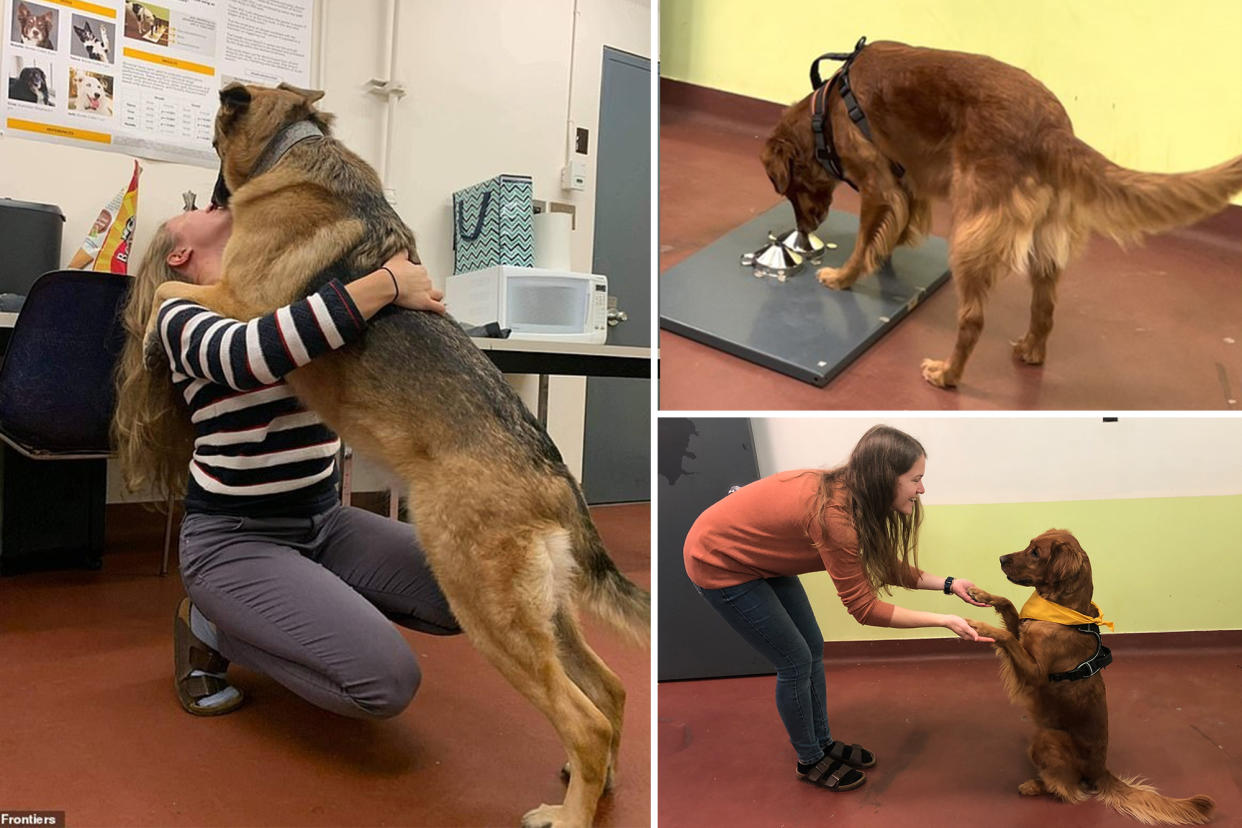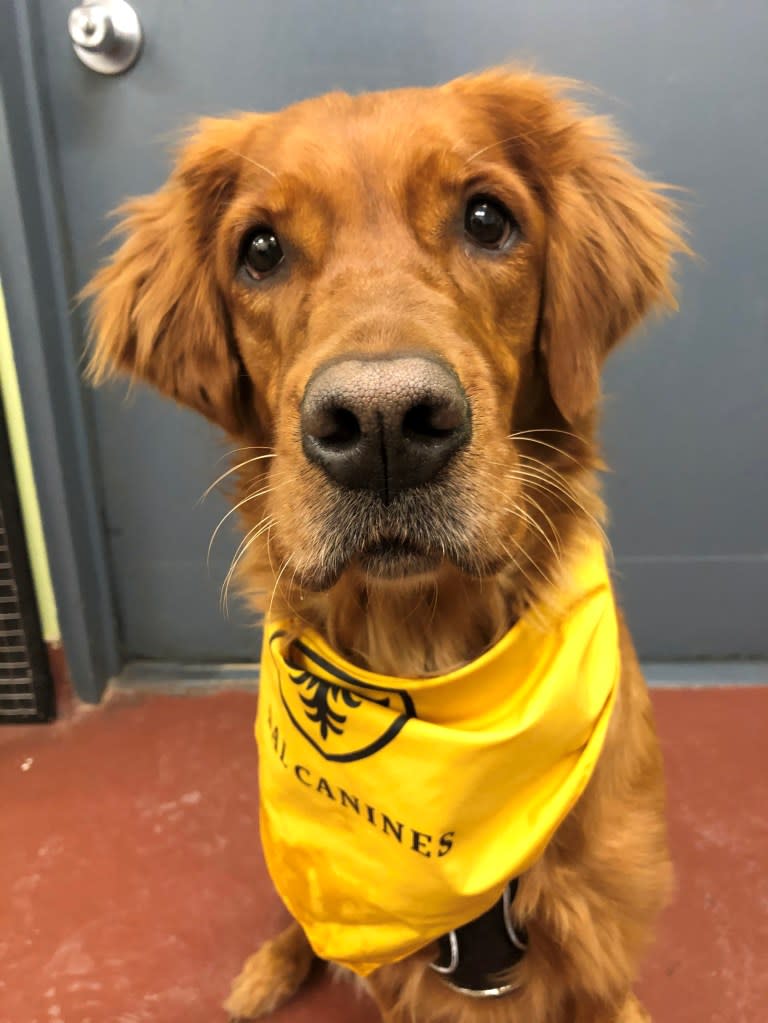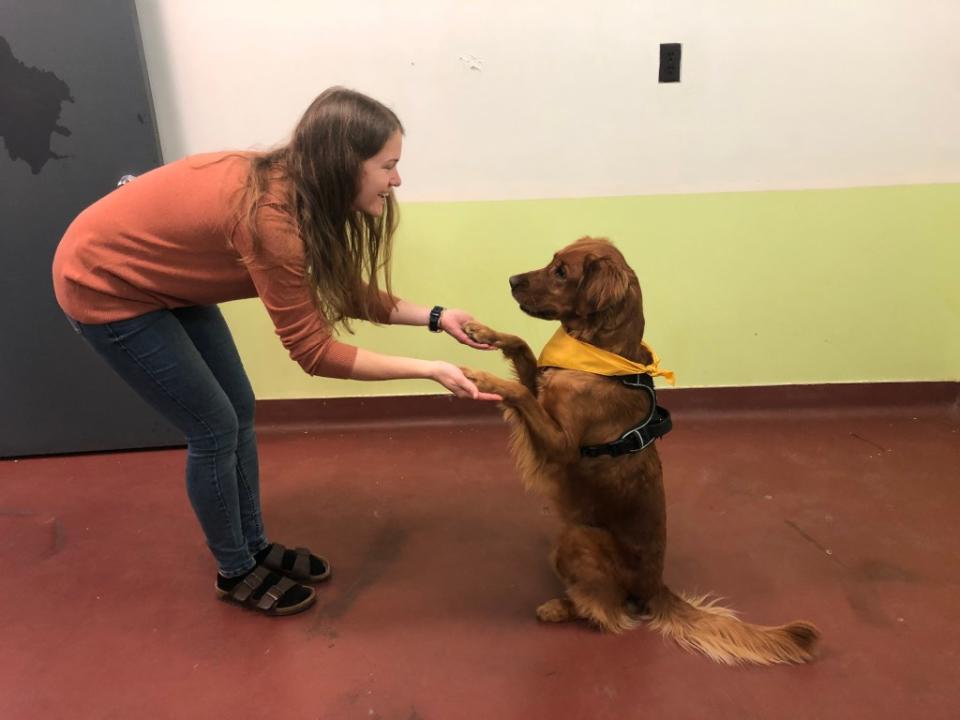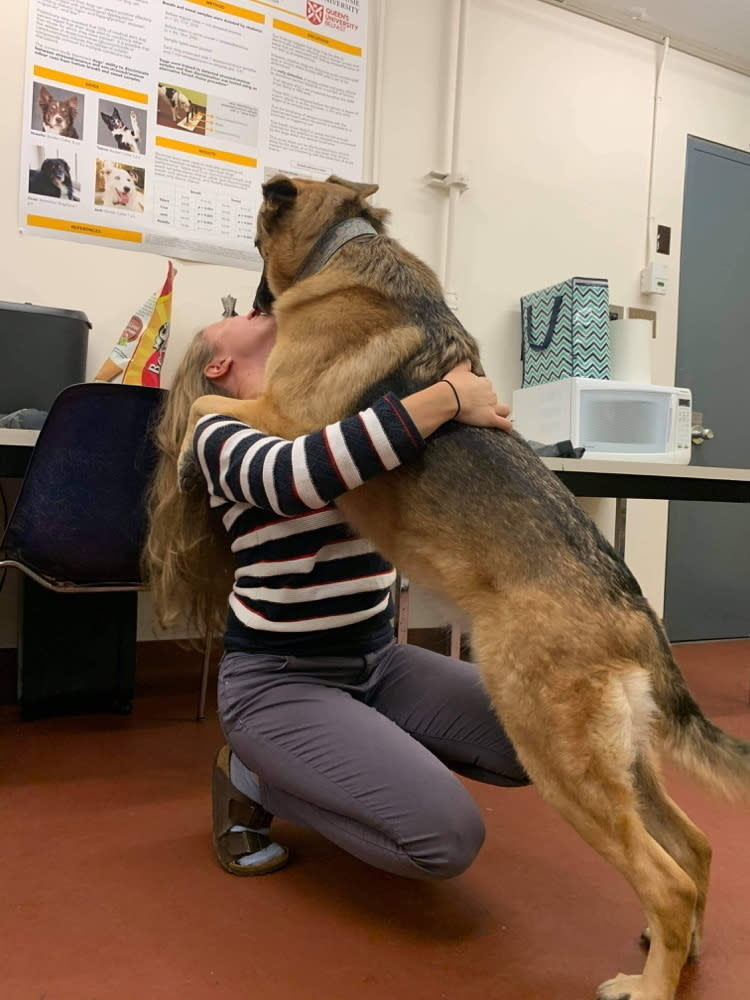Dogs found to detect PTSD flashbacks in humans — even before they happen: study

There’s yet another reason to love dogs.
Humankind’s furry best friends could potentially sniff out flashbacks from Post Traumatic Stress Disorder (PTSD) before they happen, according to a study published in the journal Frontiers in Allergy.
Scientists from Dalhousie University in Canada trained 25 dogs to sniff a person’s breath while they were in the process of recalling a traumatic memory.

Of the 25 dogs, two of them — Ivy, a Red Golden Retriever, and Callie, a German Shepherd and Belgian Malinois mix — completed the training.
Researchers enlisted help from 26 people who suffered from PTSD, which is defined a “psychiatric disorder that may occur in people who have experienced or witnessed a traumatic event, series of events or set of circumstances,” according to Psychiatry.com.
They collected multiple breath samples from the participants to differentiate between times when they were calm and when they were recalling their trauma.
The researchers said all people have a “scent profile” of volatile organic compounds (VOCS) — emitted when people sweat — that is also detectable in breath.
The two dogs who completed the study were able to detect breath with stress-related VOCS on participants’ face masks with up to 90% accuracy.

The dogs were then tested to see if they could detect VOC samples associated with stress on masks.
Researchers said that Ivy achieved 74% accuracy and Callie achieved 81% accuracy. Ivy was more able to detect when people felt anxious and Callie was more attuned to when people were feeling shame.
“Although both dogs performed at very high accuracy, they seemed to have a slightly different idea of what they considered a ‘stressed’ breath sample,” Laura Kiiroja, of the Department of Psychology and Neuroscience at Dalhousie University, and first author of the study, explained.
“We speculated that Ivy was attuned to sympathetic-adreno-medullar axis hormones, like adrenaline, and Callie was oriented to the hypothalamo-pituitary-adrenal axis hormones, like cortisol,” she added.
Dogs are already trained to help people with PTSD.
This study highlights the potential for even more effective PTSD management.

“PTSD service dogs are already trained to assist people during episodes of distress,” Kiiroja said.
“However, dogs are currently trained to respond to behavioral and physical cues. Our study showed that at least some dogs can also detect these episodes via breath.”

